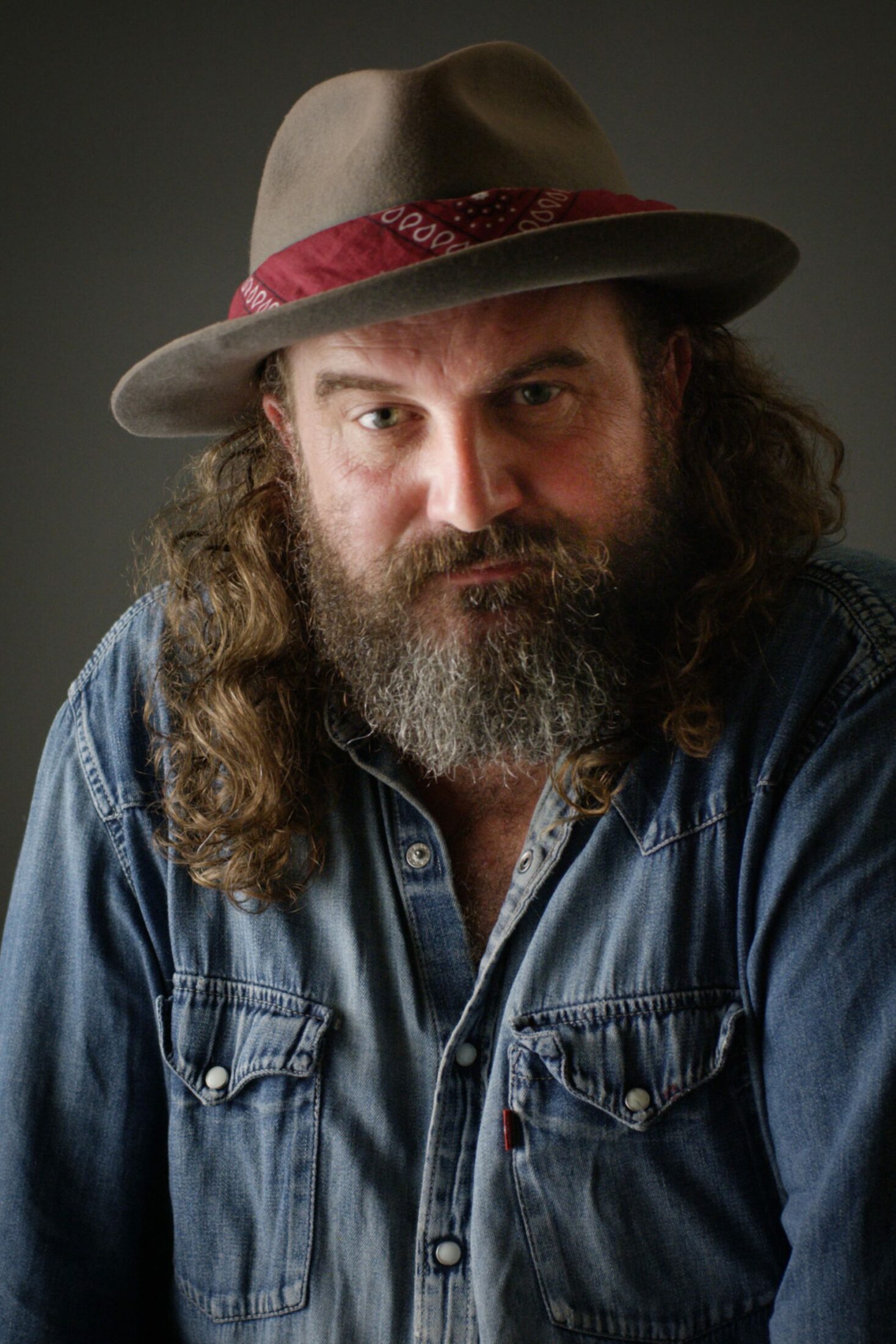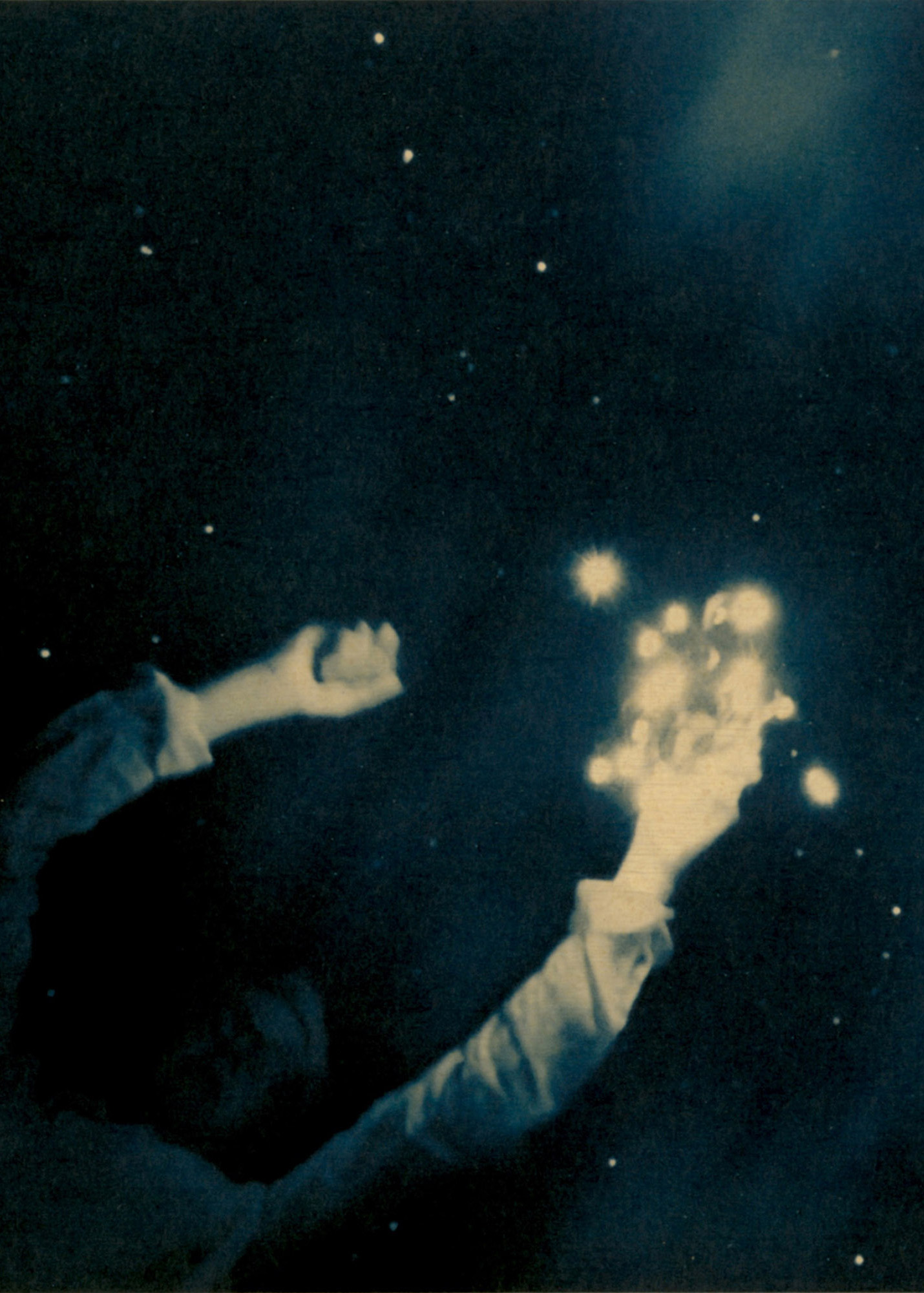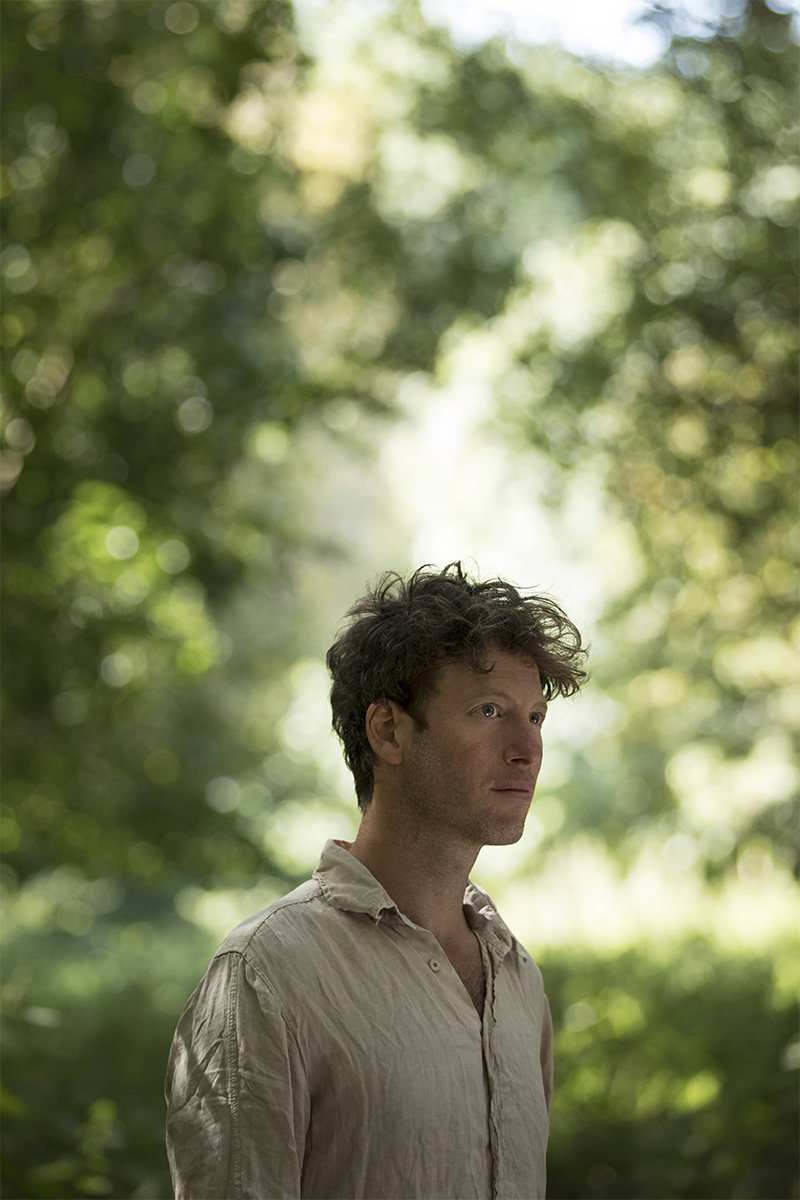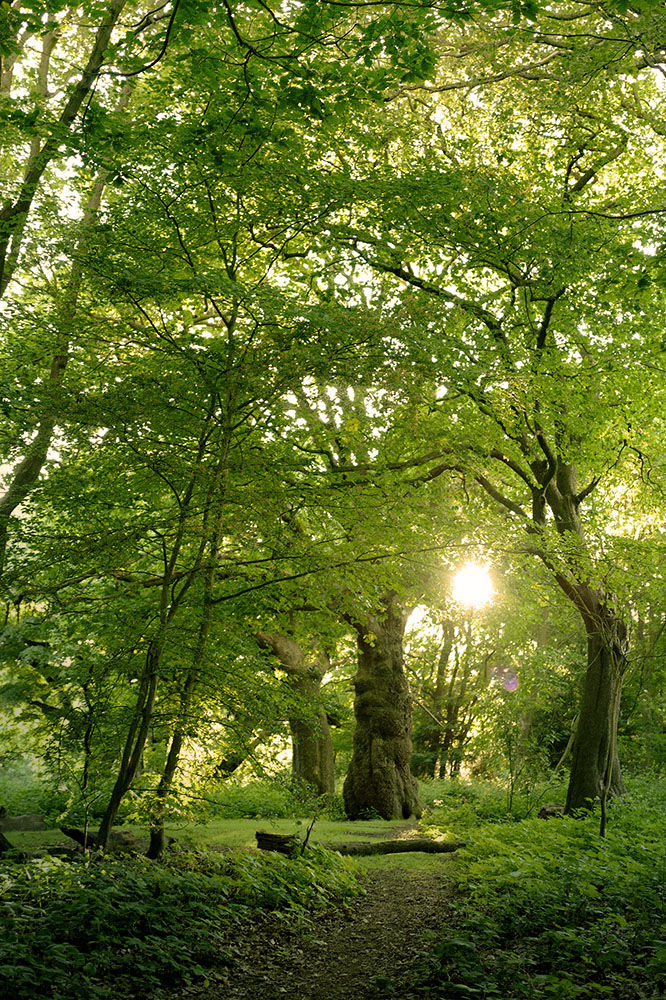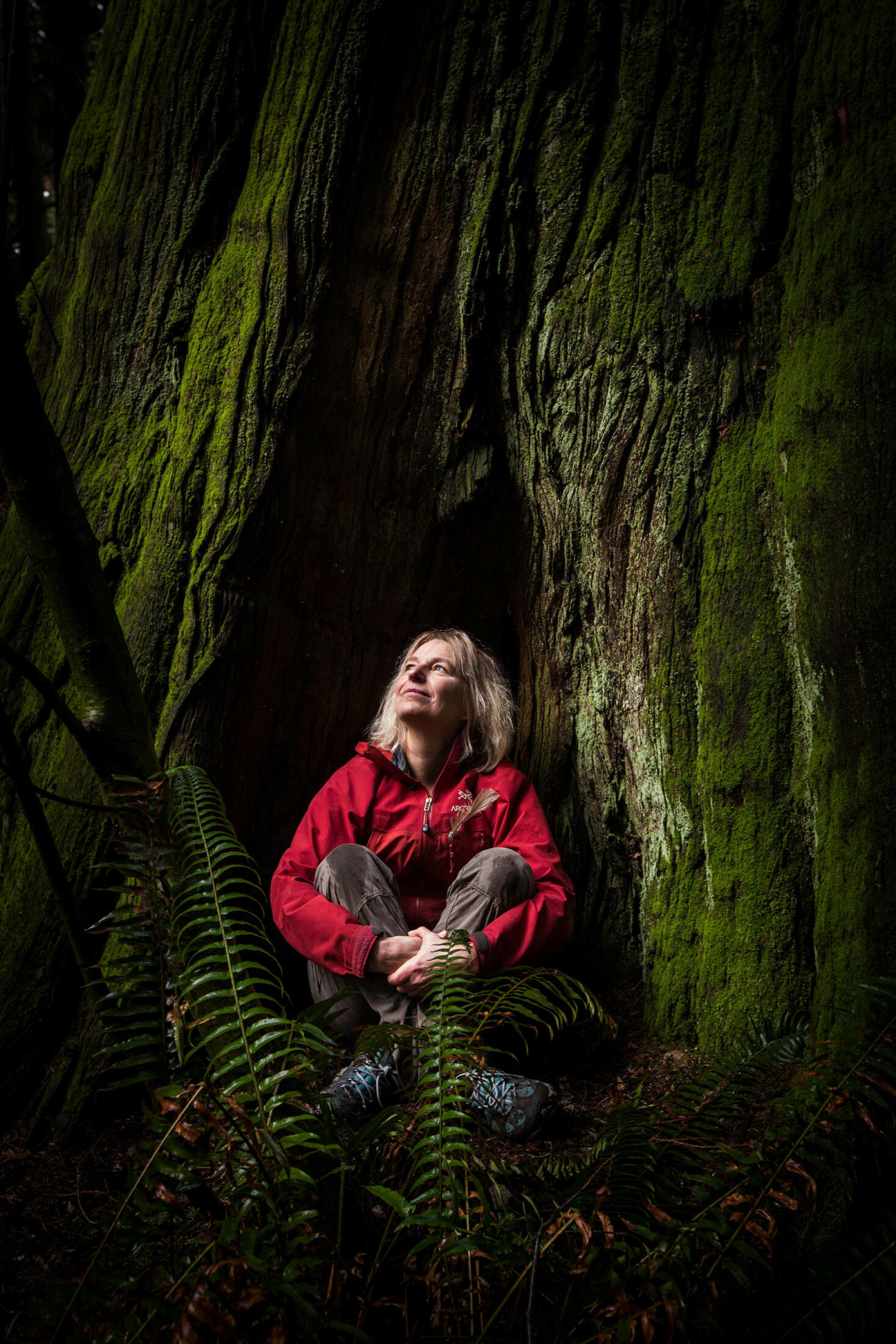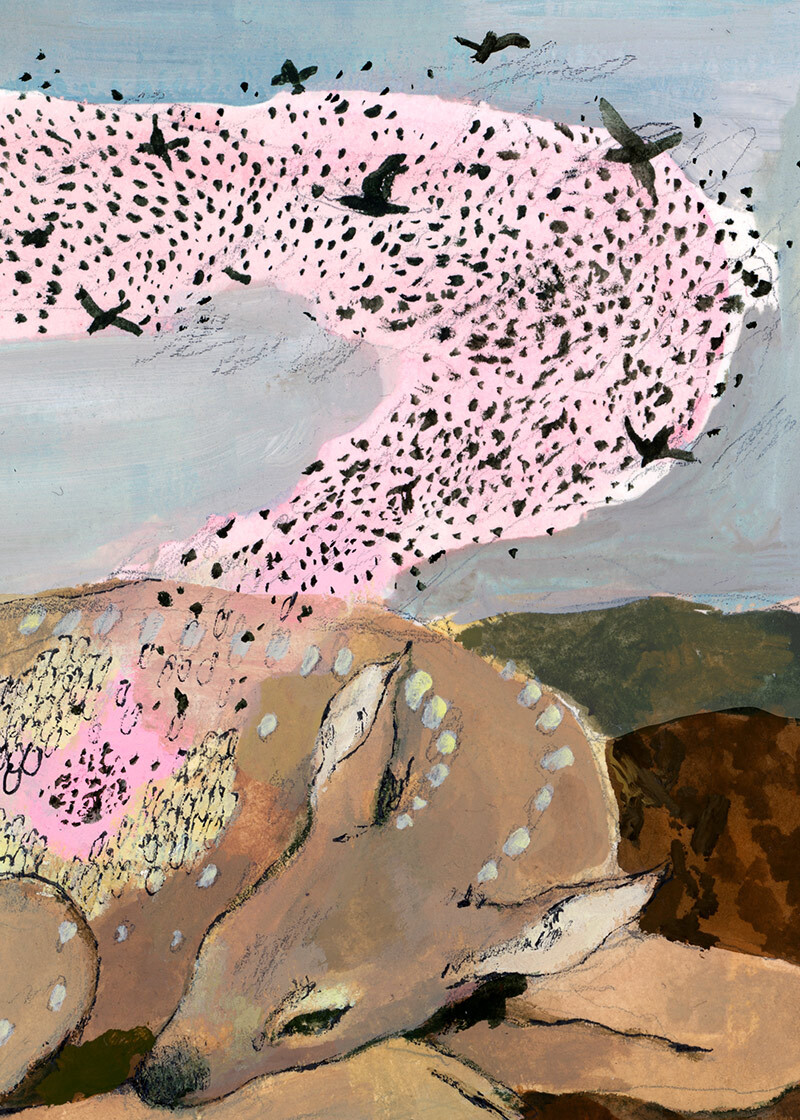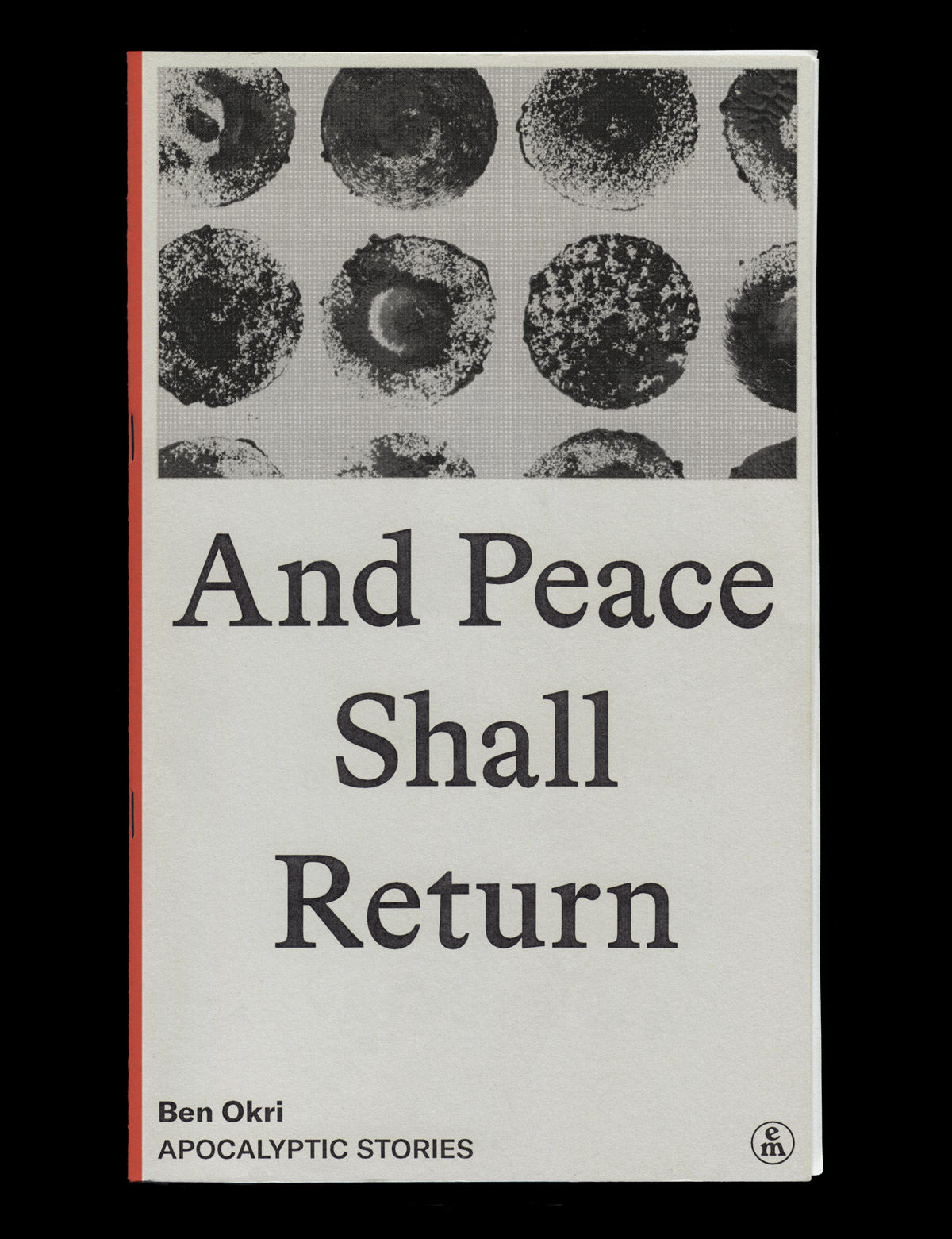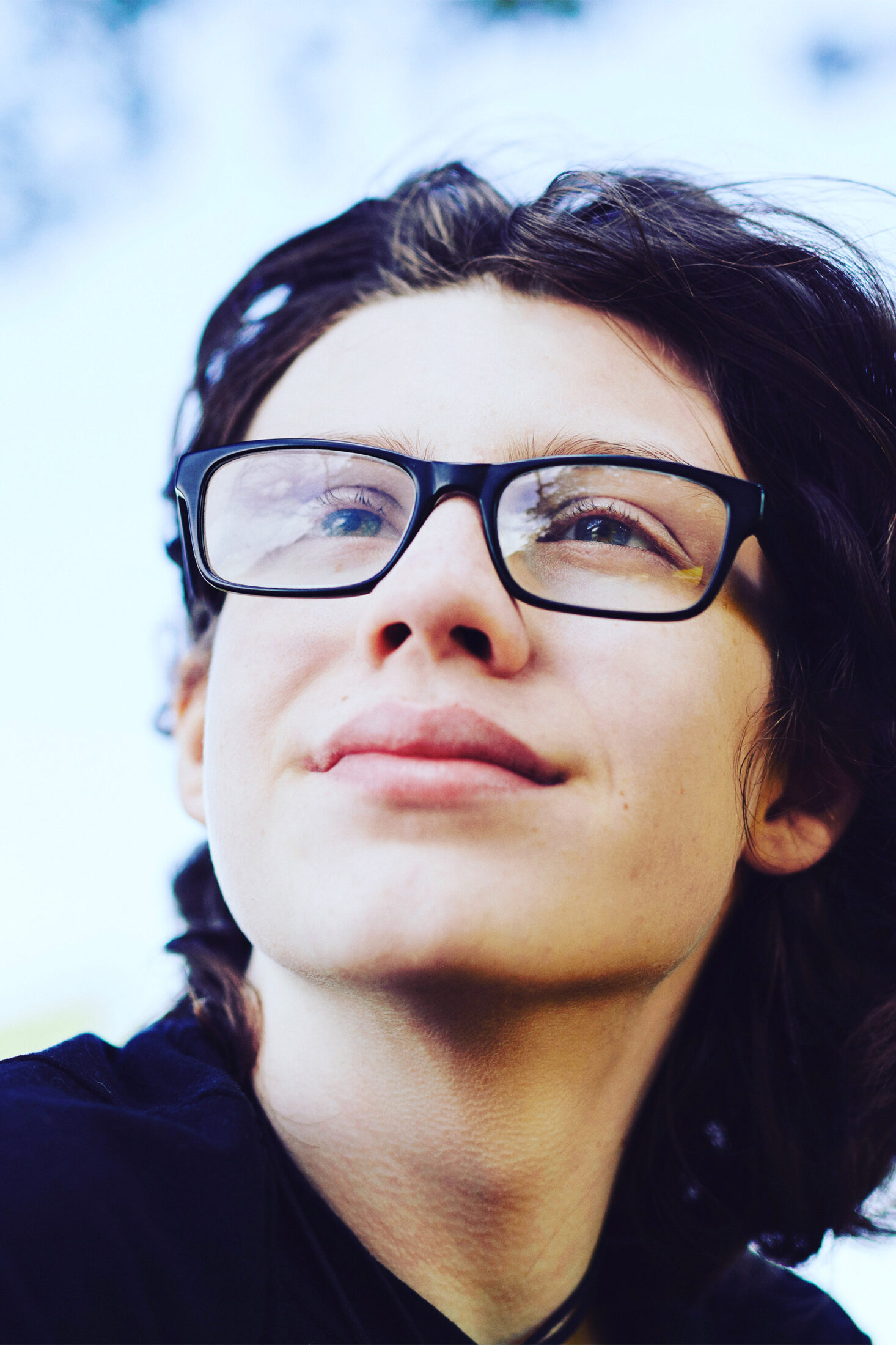
Finding Joy in the Unknown
Dara McAnulty is an award-winning autistic author, naturalist, and conservationist from Northern Ireland. After writing his blog, Naturalist Dara, he published his debut book, Diary of a Young Naturalist, when he was fourteen years old, which won the 2020 Wainwright Prize for Nature Writing and the British Book Awards Book of the Year for Narrative Non-fiction; most recently he published his third children’s book, A Wild Child’s Guide to Nature at Night. In 2022 Dara became the youngest recipient of King Charles III’s first New Year’s Honours List and was awarded a British Empire Medal for services to nature and the autistic community. He is a prolific environmental campaigner and has worked with Chris Packham, the Royal Society Protection of Birds, National Trust, and the Wildlife Trusts. He is an ambassador for the RSPCA and the Jane Goodall Institute, and has worked with Chris Packham, the Royal Society Protection of Birds, National Trust, and the Wildlife Trusts.
Emmanuel Vaughan-Lee is an author, Emmy- and Peabody Award–nominated filmmaker, and a Sufi teacher. He has directed more than twenty documentary films, including Taste of the Land, The Last Ice Age, Aloha Āina, The Nightingale’s Song, Earthrise, Sanctuaries of Silence, and Elemental, among others. His films have been screened at New York Film Festival, Tribeca Film Festival, SXSW, and Hot Docs, exhibited at the Smithsonian Museum and London’s Barbican, and featured on PBS POV, National Geographic, The New Yorker, and The New York Times Op-Docs. His new book, Remembering Earth: A Spiritual Ecology, is forthcoming from Shambhala in summer 2026. He is the founder, podcast host, and executive editor of Emergence Magazine.
In this interview, Dara McAnulty—a teenage author, naturalist, and conservationist—speaks about his identity as an autistic person, his award-winning book, and the great necessity of staying rooted in joy.
Transcript
Emergence MagazineDara, you wrote your first book, Diary of a Young Naturalist, at the age of fourteen and you’re seventeen now. Is that right?
Dara McAntulyYeah, I’m seventeen now.
EMAs I understand it, the book grew from a blog that you started writing when you were twelve years old. What initially prompted you to want to start writing publicly like this at such a young age?
DMWell, I had been writing for a long time before that point. Writing was a way for me to communicate. I didn’t like to speak to people. In fact, I spoke to basically nobody outside of close family, and any conversation I had outside of that was incredibly awkward and I hated every second of it. Writing, on the other hand, I found incredibly easy to do. It was something where I could take what was going on in my mind and put it into something a bit more physical, something that I could touch.
The process of that became really, really important to me, and I don’t really know why I ended up deciding to go online with it. I guess I almost wanted to get it away from me instead of inside this sort of bubble. My writing was still sort of with me, if that makes sense. A lot of the stuff that I was writing about, my love and my troubles as well, I wanted to send it out into the world, even if nobody would really see it. It was also just going to be something fun I could do in my spare time. Now it is my spare time.
EMWell, you were writing at least in part about your love of the living world and your concerns about what’s happening, and it seemed like that hit a nerve because people did start reading, and it resonated with a lot of people. What was that like? Was it a surprise to you?
DMYeah, it was a complete surprise. Honestly, I just sort of began blocking it out. I was like, “Nope, still nobody’s reading it.” Even as I saw people were reading it, I still told myself that there was nobody reading it because I felt like once I came to that realization that people were actually reading it, I would get too scared and I would stop. So I just kind of kept on going.
If you’ve ever been on WordPress, which is where I wrote the blog, they’ve got this little thing so you get all the statistics, and I do love a bit of maths and stats. The thing that sort of got me to realize that my blog was starting to reach people was this little map, and it sort of showed you how many people from different countries were reading your blog, and it was the funniest thing.
Honestly, my knowledge of geography improved with that, so I began to realize that people were actually reading it. I sort of admitted to myself that people were reading it, and then I wasn’t really scared anymore, because I was now so used to writing [the blog posts], and I loved writing them, and I loved writing for people now, in general, that the fear sort of disappeared. And now, obviously, I like writing for people. It’s something that still gives me a lot of happiness.
EMYou chose to document the cycle of the seasons in your book and use a very personal diary format that I guess grew out of the blog in many ways. Why did you choose to use this format and work with the seasons?
DMI think I chose the format because I didn’t know I was writing a book. It was a series of blogs. I did not know it was ever going to get published. Then the publisher came up to me and my family, and they were like, “Do you want to publish a book?” Like a collection of blogs, it was meant to be, small collection of blogs. Give it out to Twitter followers, happy days. It didn’t end up like that.
So it’s about the end of spring when I actually know that I’m writing a book. Before that point, it is written with absolutely no knowledge that this is ever going to see anybody’s eyes but mine. I just sort of ran with it. There was no real active choice in the matter, although it did end up being better for the book as a whole, having it in a diary format. It allowed me to almost confide within the diary all of the things that were going on, some of the things I was angry about, some of the things that I loved, and all of the different things that you get in a diary, all that human emotion that you can only really get in a diary.
It also made an interesting dilemma for an author: that you have no idea what the ending of the book is, which is kind of terrifying when you think about it. There’s no such thing as foreshadowing if you don’t know what you’re foreshadowing. Usually, you can have all of these different lines linking up the entire book to make it a bit more cohesive. I couldn’t really do that. So I just put myself into every single diary entry, and I had to put everything in.
This is what I realized—that in a diary, I am technically the main character. As much as I hate to admit it, I am the main character in the book, and I’m a complex human being. We are all complex human beings. And because it’s a diary, it’s got to sort of reflect that. That led me down to, “Okay, now I need to tell everything. I need to put everything into the diary—the good, the bad, the ugly, the amazing, the brilliant, and the sad—all into writing, because if one little detail was missing from that, the entire character of Dara McAnulty sort of falls apart.” Because then you’re going, “Why did Dara do that? Why is he thinking this?” if I don’t actually put everything out there. So that was something that let me be a bit more honest with the book as well. But yeah, I’ve ended up loving and hating the diary format after this.
EMI loved how personal it was and how open and vulnerable you were about everything, from autism to your school bullying to questioning your own place in the world. It felt like it was as much about your own process of self-reflection and personal growth as it was about your relationship with the natural world. And in fact, it feels like they became more and more inseparable as the book went on. Was that something that came about intentionally as you were writing and you started to see those threads come together, or was it more organic?
DMI do think it was organic, because nearly everything about the book was organic, because I wrote blogs before this. I was never trained in literature. I didn’t really know how to craft a piece of writing. All I really knew how to do was the thing that I’d been doing for the longest time: to put emotion down on the page. I feel like a lot of my emotion is tied up in the natural world, and so the natural world became a forefront to the book, but also, all the other things that were going on in my life. So they did become quite intertwined because the natural world and all the things that make me up as a human being all had to come out in the diary. It’s all pretty emotion-based. You can’t really separate out everything that makes me, me. It just sort of starts to blend in with each other into this beautiful mixture that makes humans really annoying to understand, honestly. It’s been troubling me for a long time.
EMYour book offers not just an interesting and intimate portrait of your own experiences but also very much [those] of your family, who you describe as being “close as otters,” which is a wonderful, wonderful description. I wonder if you could talk a bit about your family and your relationship with them, because they’re so central to the book and your life.
DMI need to have a counter for how many times that line has been quoted now. I think it is the most quoted line in the book, which is kind of funny. I do love that line, though. My family mean a lot to me, and everything we do, we try to do together. Every single challenge that my family has faced, we face it together. Whenever I decided to go absolutely insane and start writing a book, they supported me. Whenever anybody in our family tries to do something, we all band together to get it done, and I feel like that does come out in the book, in the writing, that sort of cohesive unit.
Although it was kind of funny, after the book was published, it was like, “Does this family never argue?” Yeah, we do. That’s the answer. The arguments do happen, but they’re always resolved, and it’s nice to have a few people in your life that you can always sort of trust and have that confidence in.
EMYou said that your dad played a huge role in nurturing your love of nature, but also that your love and connection to nature was forged in your mum’s womb, the umbilical cord still nourishing you. I love that description, and I wonder if you could speak to that a bit, how that connection was forged.
DMSo when it comes to the parental connections, I think, with my dad, he taught me science, basically, because he works as a scientist. So he was that sort of grounding root in logic that I needed. And then my mum, she’s the more art-focused one, the one who got me into realizing that I could express myself through writing, and both of them supported me.
A lot of parents, if they would’ve seen the stuff that I’d gotten up to when I was a really, really young child, would’ve started screaming at their child, “Get away from that, get away from that! It’s dirty, dirty! It’s dirty.” I was picking up scat. I was picking up bone. I was picking up all manner of feathers. Nothing bad has happened to me, so it probably was fine. I don’t know why parents get so miffed about it. But the fact that they didn’t shout at me or get annoyed and close off that connection to nature—as children, we want to discover this incredibly beautiful new world. And so that connection, that growth, still lives on and continues even as I grow older.
EMIn the book, you describe yourself as having “the heart of a naturalist, the head of a would-be scientist, and the bones of someone who is already wearied by the apathy and destruction wielded against the natural world.” When did you start feeling this way in your bones, and how does that feeling affect your head and heart, so to speak, your approach to being a naturalist and a scientist?
DMThat weariness came from seeing a lot of the destruction. Seeing the apathy in people sort of brought that into my mind and into that focus. I feel like I’m a lot less weary than I was in the book. I’m a lot closer to being on my way to being a scientist; and my heart of a naturalist is still burning strong; and I think the weariness has sort of faded a little bit because I’ve realized that weariness gets nothing done anymore. Weariness is the idea that nothing can be done. And I didn’t think anything could be done, because all my life I’ve been told that nothing could be done, that the world is as it is, and we can do nothing about it; and that’s not really true anymore.
The entire battle of the book for me—people take different things away from the diary, but the one that I resound with the most is this inner struggle in me about whether or not art or writing or music is worth it. Can it make a difference? Can it change people’s minds? Can it change the world? I think at the end of the book, I realized that yeah, it can. It’s done it before. It changes people’s minds. It shows people the way that the world could be, in spite of the way that it is now. And only by seeing that future can we work towards it. That’s the artist’s job: to show the way that the world can be.
And I think, upon realizing that I became a lot more excited, I guess, a lot more enthralled, I had a lot more passion to go forth into the world, like at the end of the book, with the realization that what we do makes a difference—to maybe a small amount of people, but it still makes a difference. Without hope, nothing ever gets done.
That’s sort of where I’m at, at the moment—a lot more optimistic and a lot less angry, as I was in the book. I was quite angry in the book. I’m a bit more chill now. I’ve definitely still got that weariness in me, because sometimes you just see something and it just makes you want to curl up in a wee ball and disappear for a while. But I definitely—I’m a lot more hopeful.
EMWell, joy feels like it’s a very central theme in your book, and I can feel the anger that you have in the book, your questions about what your role is and how to respond to this, and your art versus traditional activism, but it also seems you’re talking about joy being a needed response to the climate crisis and the ecocide, and that there has to be a way of being rooted in joy and not just outrage and anger. And there’s a line in the book that I was struck by that maybe speaks to this. You said, “Find joy in the unknown, because maybe all of life is unknown and we are grappling in the dark.”
DMThat was a good day when I came up with that line. And that line, I think, was sort of trying to be like, we can’t know the future. I feel like that joy we so desperately need is something that we need in order to actually solve all the crises that are coming in. Because one thing that I’ve always found among traditional activism is that quite a lot of the time, it works on fear. It works on the fear that, “Oh, my goodness me, the world is going to end.” That’s a pretty big fear, possibly the biggest fear you could have. If that’s the reason why we eventually sort everything out, if we sort everything out because we were so scared of the world, what happens after the crisis is over?
I’m still pretty certain we can fix this crisis, but if we solve it because of fear and we go back to our original ways, the problems that we thought we dealt with reappear, and we’re back in the same boat in about a hundred years, basically. But if we solve the problems because of wonder, because of joy, because we care, that’s a lot more permanent. That’s something we can pass on from generation to generation. And so I don’t know what the future will be, but I absolutely know that things that give us joy in this world, especially the natural world, are essential for everything.
EMYou write about this in the book, and you also share that autism makes you feel everything more intensely and that you don’t have a joy filter; because sadly it seems that in our current culture people can often dismiss joy as childlike, especially when it’s expressed in relationship with the living world. That it’s fine for kids to have feelings of wonder, but not adults. And in the book, you write that we’re told that childishness is wrong—bad, almost—and that you mourn a world without such feelings, a joyless world, a disconnected world. And it seems that part of what maybe emerged in the book, or maybe it was an intentional emphasis, was to challenge this notion of dismissing joy.
DMYes, it absolutely was. It’s something that I felt strongly about for a long, long time—this idea that joy and wonder are for children, and that once we grow older, we have to get really serious, and we have to go get jobs. We’ve got to live old and die. Life is a bit more interesting than that, honestly. We should be allowed to have wonder in the world, because the world is a wondrous place. I think the first step to that is being able to ask a single question, and that question is, “Why?”
I feel like as we grow older, we almost get scared of that question. We get tentative about it because we feel like we should already know it. Asking those questions generates curiosity, and through that curiosity, that will actually force you to look outside your house for a while. Look out into the world and think about it for a while, and that will actually give you joy, surprisingly enough. Thinking about stuff is quite a joyful activity. Taking a few moments to daydream a little bit, it’s what I do when I’m feeling a little bit sad.
EMThroughout the book, you write about being different very directly and how you’re different from everyone in your class and your school, and that wildlife and nature is very much a refuge from spaces and people that feel foreign to you, and that wildlife never disappoints like people can—that nature has a purity to you.
DMYeah. I know that it’s autumn when the leaves are falling. Stuff like that is comforting. I also know that if I am sitting in a wood, a squirrel is not going to come up to me and start berating me or insulting me or hurt me, and that having a place where you can feel safe like that was quite important to me—a place where I could escape to, where I didn’t feel like people could get to me. And that purity of nature became a massive part of my life. It still is, because when everything else falls apart, nature is still standing there.
I can still, at the end of a horrible day, go out to a wood, and it was exactly the same as it was yesterday. And I feel like that’s probably why my life sort of falls apart whenever I see destruction. Because it’s that solid base, that solid structure that I’ve built my entire life off, almost. That entire support structure can be destroyed in a day, which is kind of terrifying.
I definitely need it. It’s something that I require to keep on existing, having that escape. I feel like I was escaping a world where there were bullies, where I didn’t feel like my voice could be heard, where there were constant stresses, where there were loud noises and ridiculous colors that made my brain go wild. And in nature, I know what I’m going to see. I don’t know what animals I’m going to see, but I know what colors I’m going to see. I know sort of what sounds are going to be in that environment. I know generally what temperature it’s going to be, and all of that sort of stuff feels stable. It regulates itself.
Honestly, the human world sort of stresses me out, and nature doesn’t. And I think that’s the baseline of it, isn’t it? Nature good, human bad.
EMYou offer a lot of very candid reflections about autism in the book and also about what it’s like to be classified as an “autistic person”; as you say, “Many people accuse me of not looking autistic. I have no idea what that means. I know a lot of autistics and we all look different. We’re not some recognizable breed. We are human beings.” And you’ve said that one of your hopes with the book is you want people to understand autism more. Can you speak to this a bit?
DMI do speak quite candidly about autism and being autistic, because it’s a part of who I am, and it was a diary. And so it’s kind of a big detail, if I’m going to be honest with you. It’s kind of a big part of my life. It’s not a “condition,” quote, unquote. It’s just a reframing of perception. You just see the world in a different way. Different colors come into your brain, and some make you go crazy, some are fine.
Even among autistic people, what actually will sort of trigger negative emotions in you is different for everybody. I know autistic people who love loud noises; I, on the other hand, absolutely hate them. And more, that we should all look the same—it’s kind of ridiculous when you realize that it’s something to do with the brain, and you can’t really see the brain. So there’s no real reason why I should look different to someone else.
With the book, I tried to increase perception and awareness about autism. I can’t tell you what every autistic person is going to be like. I can’t tell you how you’re supposed to act around an autistic person. I can’t give you a rule book of the autistic person. What I can do is tell you that it’s not a disease; it’s not this horrible thing. And I can tell you that it’s this rewiring of the mind. It just changes your perception and how you process things, and how you express yourself can be changed as well, and how you think about stuff is different. And I guess that’s all I’ve really got to say. It’s a part of me, and so I’m completely free about talking about it.
EMIn the book, you talk about how dandelions remind you of the way that you close yourself off from so much of the world, either because it’s too painful to see or feel or because you’ve been open to people that ridicule you and the intense joy you feel about the living world; and that for years you’ve kept it to yourself, but now these words are leaking into the world. And I love the image of the dandelion here, both as a metaphor for closing yourself off, but also because when a dandelion is mature, it closes until all the seeds are ripe, and then they’re all released into the world, and they spread. I really felt this in the book, that process of what you were going through, of closing in and then opening yourself up through the sharing of your words. Did writing the book give you the permission you needed to feel comfortable being the voice of the next generation, which you’ve been called by a lot of people in the environmental space?
DMI don’t think I’m the voice of the next generation. Nobody is, honestly. We’re a generation who mixes our voices together into one that is pretty strong, but I hate the idea of individual voices. The things that we’re talking about just need to be done. We don’t want to be considered voices or leaders or anything like that. We just want to bloody fix it. That’s the ground level of it.
I think the book was just my way of doing that. It was my way of showing my view on the world, showing what was going on in my mind, showing how much I love the world. And I guess doing everything after the book definitely gave me a lot more confidence, I have to say. When I was writing the book, I could not speak to anybody. I remember I was doing an event—I think it was with a charity named Ulster Wildlife—and I was doing a talk there and I nearly fainted onstage. I could not stand for a solid hour after doing the talk, and it was literally just like seventy people, and I was out. And then three-quarters of a year later, I got to speak in front of about eighteen thousand people. Honestly, I still couldn’t walk an hour after it, but it’s a bit of a step up in confidence levels.
Funnily enough, I was doing a talk to schoolchildren. I think it was like—it was yesterday; God, my time is not good—and that was about twelve thousand people. And this time, I didn’t have shaky legs after it. So I’ve definitely become more confident. It’s quite exhilarating, honestly, from a person who hated even talking to a stranger to now—honestly, I love it. I’ve become a lot more confident in my voice. I’ve become a lot more confident in general. I love speaking about the things that I care about, and I’ve sort of broken down that barrier.
Although, after an event, I still can’t speak to anybody; I’m talked out. But I love it. I actually do love it. It’s so much fun now. Give people a bit of joy, show them some wonder, perhaps make them laugh a little bit—because I do love to crack a few jokes onstage. Honestly, it can get really dreary very quickly, so I feel like people do sometimes need a little bit of a laugh.
EMDo you have a joke you could share with us here?
DMNo. You can’t just ask for a joke. That’s not how it works.
EM“In a fast-paced and competitive world, we need to feel grounded,” you say. “We need to feel the earth and hear birdsong. We need to use our senses to be in the world. Maybe if we bang our heads against a brick wall for long enough, it will crumble and fall, and maybe the rubble can be used to rebuild something better and more beautiful, enabling our own wildness. Imagine that.” I love and really resonate with this notion of enabling our own wildness. It feels like a different way of looking at the idea of activism or change and is really connected with what you were speaking about earlier, about being joyful.
DMYes, because—and I’ve realized it now, that banging your head on the wall, you’re not going to be doing that for a long time unless you’re enjoying something about it. And I feel like we need to keep on going, because if you try something for long enough, eventually something will crack. Either it will be you or it will be the wall; and by God, am I not going to crack while I still have strength in me.
Then, whenever we break through that wall, that rubble, metaphorical rubble, can then be used to rebuild. If that joy persists, then that will enable that connection to the natural world, and it’s something that I hope for, and it’s something that I definitely still resonate with. It feels like we’re getting close. There’s a lot more movement, I have to say, about these sorts of things than there was when I first started writing the book.
It’s like three years ago now. People do seem to be taking notice. Whether or not anything is done about it, we’ll find out. I will continue to feel joy for the rest of my life. It will be that thing that drives me forward; because what are you going to do in life if there is no joy, no happiness in it? And for me, the natural world is my entire joy.
EMWinter is the last season in the book that you write about, and in the introduction to that section, you wrote, “More darkness means more quietness in the evenings, when all that can be heard is the robin’s song. The rook, the jackdaw, raven, or hooded crow, the distant squealing of gulls. I can hear so much more in between.” When I read that, I wondered how your relationship to the seasons had changed as you went through the seasonal cycle, and if you could now hear or see much more.
DMI don’t think my connections to the seasons actually changed too much over the book. I just love winter. It’s always been my favorite season, always will be my favorite season. I think better in winter. My brain works better in winter. It’s a lot more quiet. I like the coolness of winter. Autumn isn’t so bad, either. Autumn is very nice, as you sort of get into that darkness. Summer sort of feels scalding at times. It’s burning down on you. There’s no mystery to summer. Everything’s illuminated. There’s no little secret that can be hiding in summer, if you sort of get what I mean.
Winter, on the other hand, the days are darker. You get snow. Everything is misty and foggy. It’s a lot more mysterious. That unknown exists in winter, something that you can really feel, and it’s like no other season. And so I don’t really think that my connection to the seasons actually changed too much over the book. But I think my connection to the landscape changes with the seasons.
I feel like I have a stronger connection during winter. My love of myths was allowed to sort of come out in winter. It was the first bit of reading outside of fact books that I did, really, were myths: Celtic myths, Norse myths, Egyptian myths, Rom—not Roman, I don’t like Roman myths—Greek myths. The Romans just copied everything.
Early on in “Winter,” I write about Ballynoe Stone Circle, and that, for me—that passage is possibly the proudest piece of writing I’ve ever done in my life. It was the only diary entry that I feel like I put a lot of work into, because most of the diary entries were scribbled on a notebook in bed at night, like you would a diary, honestly. Ballynoe, on the other hand, I put work into. I crafted it over about two weeks of thinking about it, thinking about the notion of that day, developing it, because it was something that I resonated with a lot, that misty feeling, that feeling of uaigneas—the Irish word for it—that sort of loneliness, that silence, that is louder than you could possibly imagine. It’s lonely with feeling everything, and it’s a feeling that I always get in winter, especially around Ballynoe Stone Circle. And I stuck to that feeling so much—I’m so fascinated by it—that was why I loved writing “Winter” so much.
I definitely improved as a writer over the book. I’m looking back on it now—some of the bits that I wrote, I’m like, “Oh, Jesus Christ, Dara, why did you write that?” Although it is character development, because the author is the main character, and if the author is improving, so is the main character. That was actually one of the reasons why, in the book, we didn’t want to edit it too much, mostly keep it the way it was—like, obviously fix grammar mistakes, because that would be kind of embarrassing, but keep some of the more technical details, keep them in there, because it lets it be a little bit more raw.
EMWould you read that passage from “Winter,” the one that you love so much?
DMOh, it’s really long. Wait a second. It’s quite long.
EMWell, read a piece of it, then.
DMI’ll read a piece of it. Yeah, I think it’s the longest section in the book. But I’ll read the first bit. I’ll tease you all.
Saturday, first of December
We enter the holloway and I feel the string pull me along, the one that connects us with things that no longer exist but are real in our minds. Recently, my inner wanderings have been spiraling and the conversations I have with myself are becoming strange and unshapely, but feel profound and electric. I keep visualizing time as a length of string, with a flame burning at one end that represents the present, where we can act and be most alive. The ashes are the past, the intact string is the future. The string splits every time something happens. The dead are ashes: they still exist and never leave us. I can feel the string, descending, still blazing in parts, but mostly it is crisp and brown and stretched out ahead.
In the holloway, hazel overarches and I can see the exposed roots and the earth curl around me, narrowing to a vanishing point of light in the distance: a glistening full moon. My footsteps are loud in my ears, deeply trodden into winter earth. Everyone else is way ahead but I feel like the Iron Man, clanking along into another dimension, infused with sizzling energy. A sound pierces the footprint, the foot-beat: a robin in Morse code trills, an SOS messenger. I shake my head to spill out the strangeness but the eeriness remains.
A breath passes through the branches, a solemn creaking that almost sings. I start to feel really uneasy, and suddenly my senses invert as I emerge from the twilight passage. Strange shapes and colors emerge. I turn to the right and stride into the daylight. The gorse is almost in full flower here. Brambles too, with yellowing leaves. Hanging from the hazel are cuddly toys, trinkets, swaying baubles, boxes which I don’t open. I quicken my step and come to a green gate with a sign that reads “Ballynoe Stone Circle.” I walk over the grass tipped with sparkling frost; it crackles underfoot, deafening, and still, the string seems to tug me and pull me along, fire and ashes, towards the standing stones of the Neolithic burial ground.
I’m going to leave it there because the next paragraph will take me about ten minutes to read. Also, just so you know, the Iron Man is not Marvel Iron Man in this context. It is the Iron Man [from the novel] by Ted Hughes. If you haven’t read the book, everybody, you’ve got to read it so you know what I’m talking about now.
EMDara, thank you so much for speaking with us today. It’s been a real pleasure to talk with you about your work and have you read for us. Thank you so much.
DMThank you so much. It’s been amazing.
